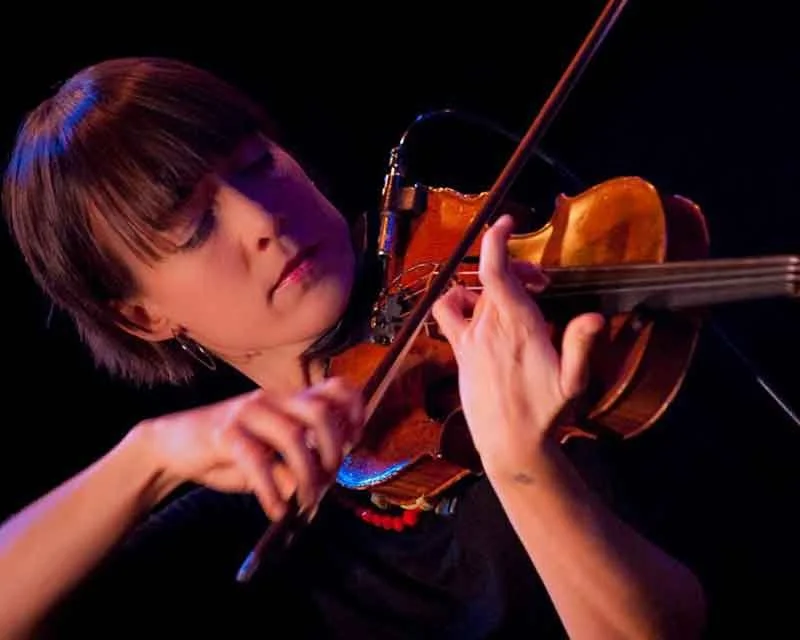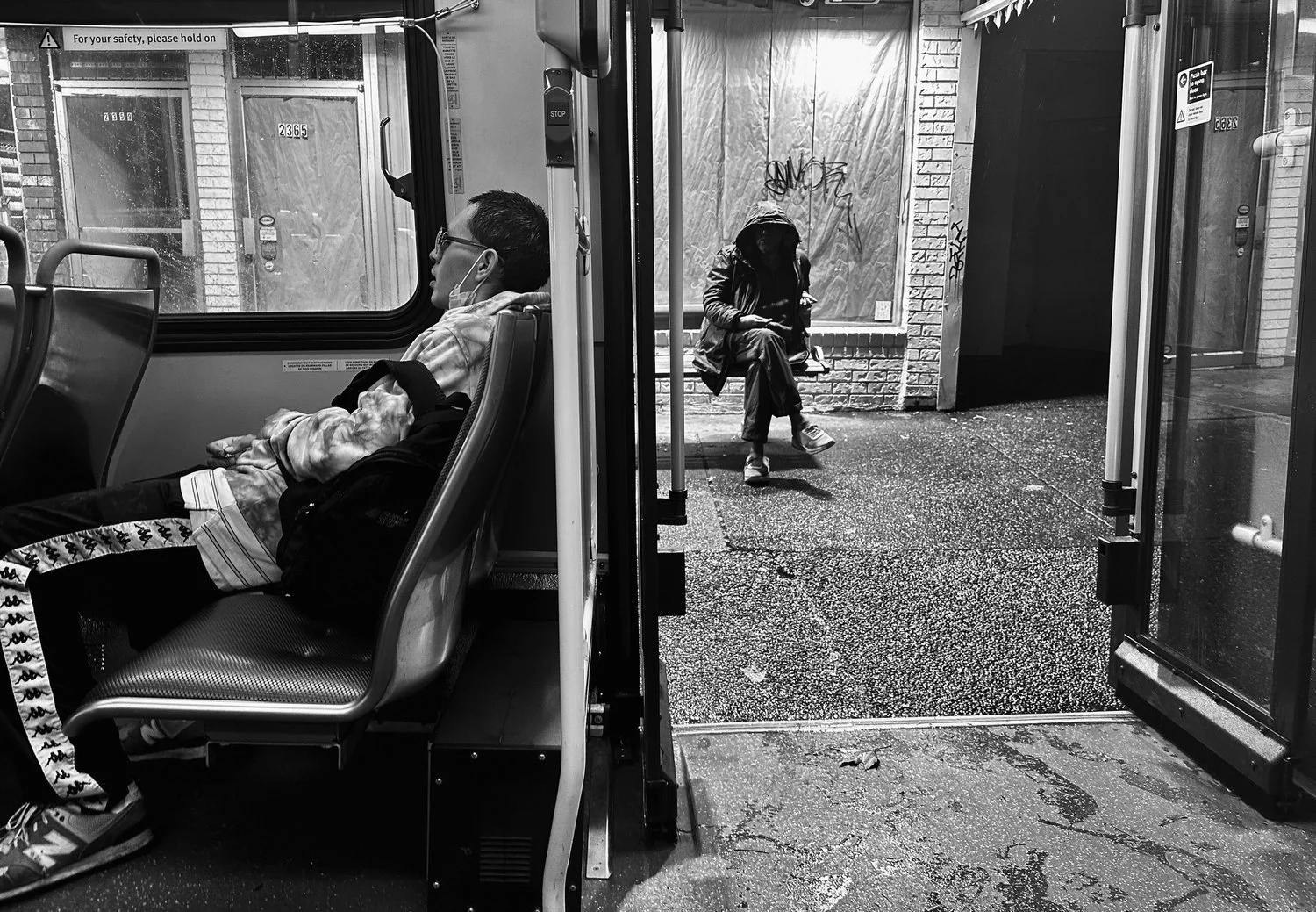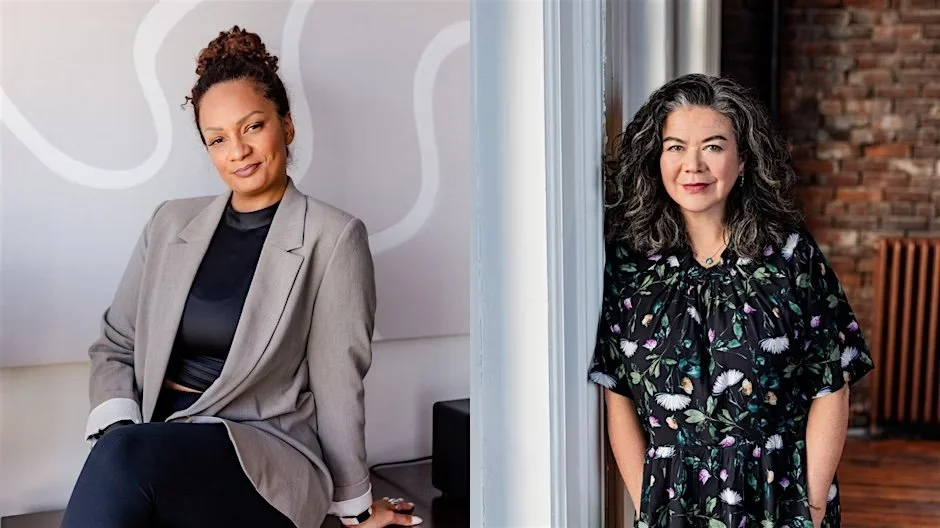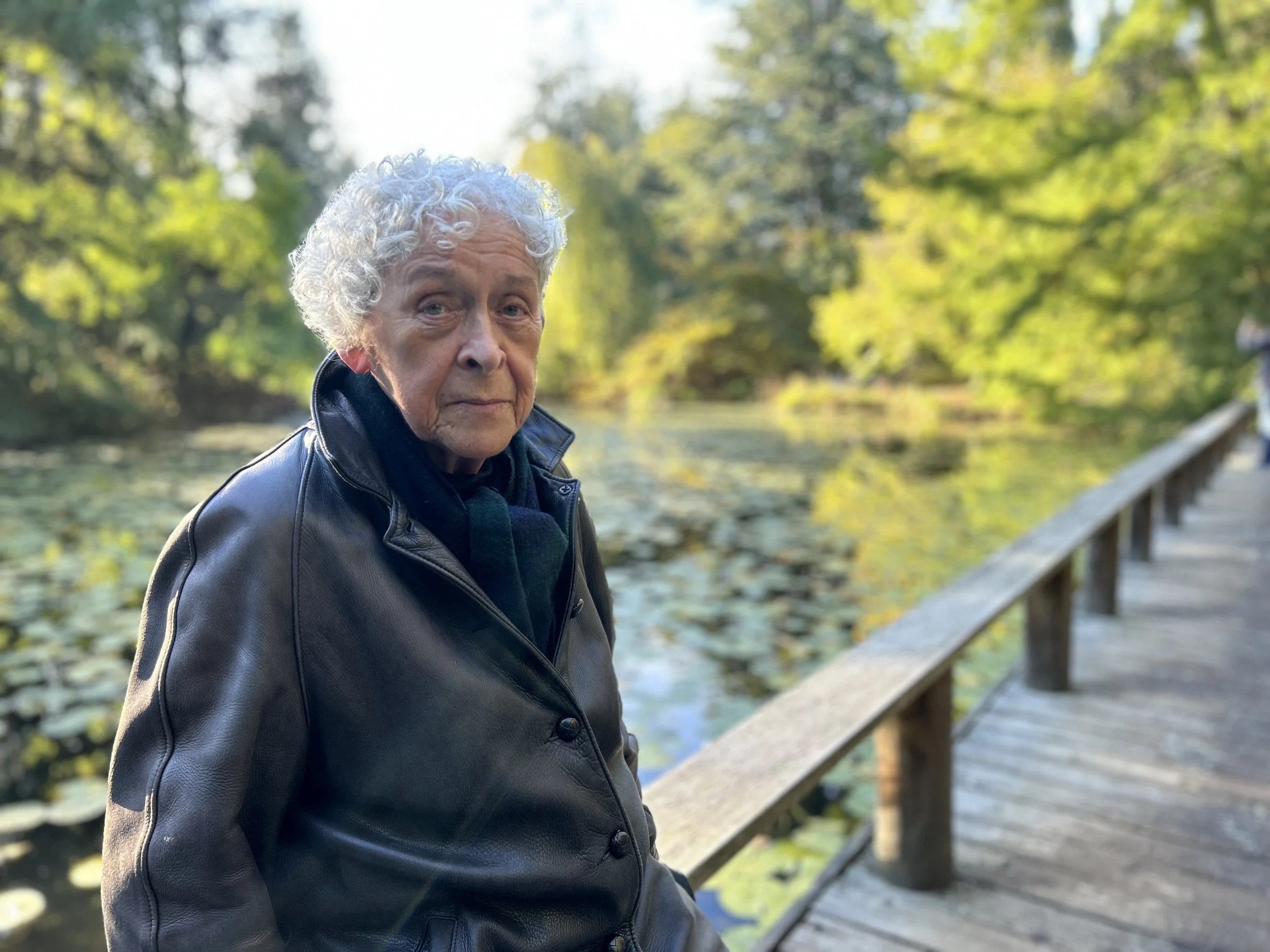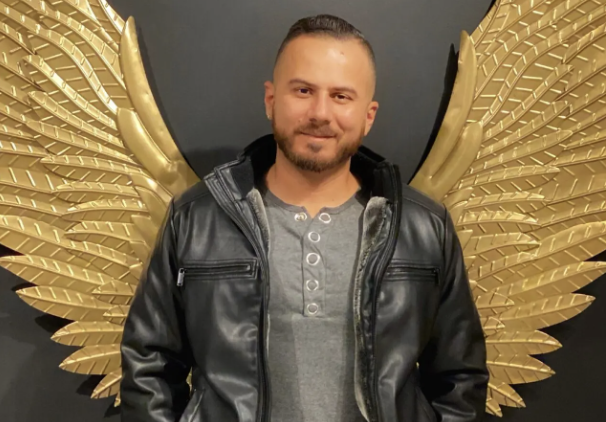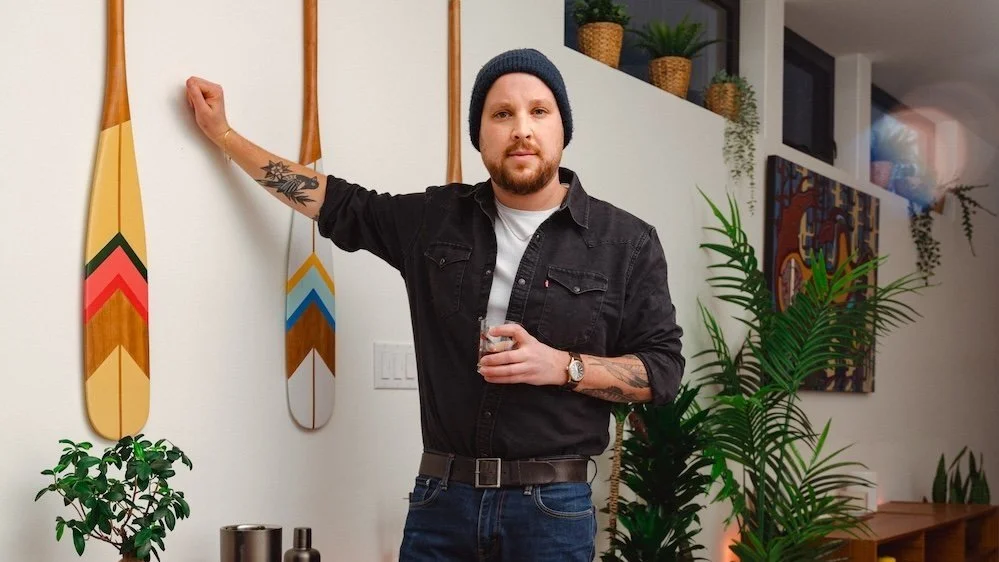B.C. election 2024: Local arts groups seek greater support from the next provincial government
Advocates say a unified strategy is needed for the arts, culture, and heritage sector
Heather Redfern, executive director of The Cultch.
Ryan Hunt, executive director of BC Museums Association.
WITH THE NEXT provincial election taking place on October 19, local organizations are pushing for the incoming provincial government to support the arts.
The B.C. arts, culture, and heritage sector has long been in conversation with the Province about the benefits of investing in cultural activities. What’s new this election year is the collective approach, with the BC Coalition of Arts, Culture, and Heritage being an unprecedented collaboration of arts groups. The coalition is led by a steering committee that includes 221A, Arts BC, BC Alliance for Arts + Culture, BC Museums Association, the Greater Vancouver Professional Theatre Alliance, and the Media Arts Alliance of the Pacific, and it has dozens of supporters. The group is calling for a strategic plan for the province’s cultural industry; without a dedicated plan, proponents of the coalition say, investments in the arts are fragmented and inefficient.
Ryan Hunt, executive director of the BC Museums Association, notes that B.C. is the only province in the country to never have had a strategic plan for its arts, culture, and heritage sector. Starting in 2017, the B.C. government has made significant investments in the sector—and, Hunt notes, the data show that this investment is making a measurable return. Since 2017, cultural sector jobs in B.C. have grown 26 percent faster than the national average. And since 2019, B.C. has been the only province in Canada to see positive GDP growth in its cultural sector.
“Every dollar invested in arts, culture, and heritage creates a $4 return on investment,” Hunt says. “Investing in our sector is a proven, common-sense approach to stimulating B.C.’s economy, not to mention the significant educational, health, and social benefits associated with a strong cultural sector.
“Regardless of the political party in power, for decades governments have failed to leverage the creativity, utility, and power of our sector to support larger strategic goals,” Hunt continues. “Where other provinces and jurisdictions are leveraging the arts to address health and wellness through social prescribing programs, or investing in the preservation of local arts venues because they understand that these spaces are integral to nurturing future global superstars, or actively utilizing the power of museums to support community education and social cohesion, British Columbia has a multi-decade history of letting one of its biggest industries squander its potential.”
The BC Coalition of Arts, Culture, and Heritage is advocating to all parties for an action plan for the province’s cultural sector.
The Conservative Party of B.C. and B.C. Green Party did not respond to Stir’s requests for an interview.
In the late 2000s, the Government of B.C. cut existing arts, culture, and heritage funding by 88 percent over two years. Eighty-nine percent of all arts, culture, and heritage organizations in B.C. received less provincial funding than peer groups in other provinces by 2010, according to the B.C. Museums Association. Government funding started to improve in 2017, when the B.C. NDP promised to double the BC Arts Council’s budget, raising it to $48 million annually. Accounting for inflation, this promise would be $58.67 million in 2024, according to the B.C. Museums Association. To this day, the promised doubling of the BC Arts Council budget has still not been reached, with the budget remaining at around $35 million annually.
While B.C. is no longer the lowest funder of arts, culture, and heritage in Canada—Quebec is the largest—the impacts of underinvestment during the 2000s and 2010s can still be felt today, creating what the B.C. Museums Association describes as nearly two decades of “deferred maintenance and an erosion of the overall resilience” of the sector.
“We have injected a lot of funding directly and indirectly to arts and culture due to the pandemic through different types of funds,” says Lana Popham, BC NDP minister of tourism, arts, culture, and sport in an interview with Stir. “Funding to the BC Arts Council hasn’t doubled but we’ve made significant investments that have actually been more than if it were doubled. For example, our Fairs, Festivals and Events funding we’ve been able to do as end of year funding just past $80 million, and we did also do a COVID relief fund for arts and culture sector so I think overall there’s been more than doubling going to arts and culture.”
As per the BC NDP’s election platform, the Fairs, Festivals and Events funding will be reinstated if the party is re-elected. “That’s something the arts community can count on,” Popham says. It would also put forth an infrastructure fund for arts, culture, and sport. And Popham said an arts and culture strategy for the province as a whole would also be on the table. “My awesome staff is already doing the legwork on that, so if I get returned to this ministry there will be a good start in talking to the community about what a strategy will look like. I would really like to see that in place over next year and a half.”
The B.C. Greens have stated in their election platform that it would increase the BC Arts Council budget to $55 million. The Conservative Party of B.C. has not mentioned the arts in its releases to date.
Kristin Cheung, executive director of the Community Arts Council of Vancouver.
Kristin Cheung, executive director of the Community Arts Council of Vancouver, notes that the organization is a supporter of the BC Coalition of Arts, Culture, and Heritage. CACV would like to see an increase in annual core funding of the BC Arts Council to $55 million in fiscal year 2024-25; maintenance of the current financial pandemic-recovery funding ($34.5 million annually) to be distributed by the BC Arts Council and its partner agencies in the 2024-25 and 2025-26 fiscal years; and the initiation of an inclusive and resourced action plan development process that would create a new vision for the sector, along with sustained funding models supported by economic and infrastructure development planning.
“Funding for the arts is so important because B.C. is the only region that has shown positive GDP growth since 2019,” Cheung says. “Yet despite this success, B.C.’s arts, culture, and heritage sector continues to strain under the weight of foundational challenges decades in the making, brought to the surface by the COVID-19 pandemic, climate change, and general economic instability.”
Cheung notes that costs for organizations like CACV are increasing, from technicians to venue rentals to human resources and more. Mixed with the downward financial climate of funders—consider Canada Council for the Arts cutting $9.8 million dollars from its spending budget over the course of the next three years—it is an especially challenging time for organizations to survive, let alone thrive.
“The result of higher expenses and lower revenue means we would have to lay off staff and stop programming,” Cheung says. “As a result of this current landscape, we’ve seen similar organizations shut down, such as the Burnaby Art Council. Organizations such as BAC are so crucial to the artists in Burnaby and local communities because they serve the local community artists that are not supported by the larger institutions.”
According to Cheung, there is a lack of funding for operating grants at all levels of government. As an example, she cites the CACV-run Vancouver Outsider Arts Festival, which has seen its budget double in recent years due to increased costs while the operating grant from the BC Arts Council has remained stagnant at $27,000.
“This amount is not even enough to cover a full-time staff person at living wage in B.C.,” Cheung says. “There is also a lack of funding for marginalized groups such as BIPOC and artists with disabilities from provincial funding. These communities are the most vulnerable with lack of resources but require the most support. There is a need for more long-term and targeted support that addresses these inequities and fosters inclusion and diversity in the cultural sector.
“Arts and culture are embedded in everyone’s daily lives, from music on the radio to books children read in schools to effective tools for health and wellness, and it should be treated as one of the most important issues in this B.C. election,” Cheung adds. “The cultural sector adds more to B.C.’s economy than forestry or hotel industries and is top in job growth. The sector should be treated as seriously as other issues in the media.”
Heather Redfern, executive director of The Cultch, says in the short term she would like to see cuts to core funding remediated and a 25-percent increase to core funding implemented over two years to address the crisis in arts organizations.
“Over the longer term, we need to develop a strategic cultural plan with the government and community stakeholders as equal partners,” Redfern says. “It needs to have timelines, budgets, and funds attached to its implementation.”
Redfern says she would also like to see a significant increase in lottery funds being directed to arts and culture.
“These funds were originally created in part to support these community-building activities, and currently only a tiny percentage of gaming profits are being directed to the arts and other areas that build responsible citizens and resilient societies,” Redfern says. “The arts touch every aspect of our lives. They are a major platform for actions towards reconciliation, equal rights, climate response, safe housing, and every other issue that affects our communities and the strength of our communities. The arts are ubiquitous and touch every person in one way or another.”
Redfern describes arts funding as being used as political football: sometimes a government thinks it looks good to provide it and sometimes it thinks it looks good to remove it.
“This approach destabilizes the sector, creating haves and have-nots and a situation where planning is difficult and fractured,” Redfern says. “Arts funding needs to be separated from politics. It needs to be acknowledged as essential and funded as such.”
Meredith Bates, co-chair of the Coastal Jazz and Blues Society’s board of directors.
Meredith Bates, co-chair of the Coastal Jazz and Blues Society’s board of directors, notes that the Vancouver International Jazz Festival will be marking its 40th year in 2025. The board is asking provincial election candidates from all parties to consider the arts as the “vital connective tissue that joins diverse communities in celebrating our vibrant cultures together, and supports inter-sectoral revenue development that benefits everyone across the province”.
“What I would like to see come out of the B.C. election this October is a clear commitment to developing a strategic plan for investing in the arts at the provincial government level,” Bates tells Stir. “Coastal Jazz along with many other cultural organizations are still struggling from the effects of the pandemic and ensuing economic recession. We need the government to extend the emergency funding that was put in place at the onset of the pandemic and renew its commitment to increasing long-term arts funding in order to stabilize our finances and continue to produce a world-class music festival with and for our city.”
Bates says the Vancouver International Jazz Festival has a positive economic impact by attracting international audiences and artists to Vancouver’s core and connecting local audiences and artists, strengthening the city’s cultural fabric. The fest is also responsible for launching the careers of many B.C. musicians who go on to thrive on the international scene.
“The return on investment for cultural events like the Vancouver International Jazz Festival is greater than that of many other sectors,” Bates adds. “Acknowledging this through a commitment to increasing funding for the arts in B.C. is guaranteed to not only be a huge economic boon for the province, but is proven to have positive effects on the psychological and physical health of its population. The B.C. government needs to legislate a strategic plan that clearly states exactly how they will honour their commitment to investing in arts, culture, and heritage in our province.”
Terry Hunter, executive director of Vancouver Moving Theatre and artistic producer of the Downtown Eastside Heart of the City Festival, says that while the current government has recognized that the arts, culture, and heritage sector is a vital component of the economy of B.C., more needs to be done to strengthen the industry. The temporary B.C. Fairs, Festivals and Events Fund is one example of crucial funding that has helped the arts sector recover from the pandemic and post-pandemic years, he says.
“It is very expensive to live and work in B.C.,” Hunter says. “Vancouver’s housing costs are among the highest in Canada. Arts, culture, and heritage organizations are grappling with soaring inflation, venue and insurance costs, and soaring labour and operating expenses. To continue to make a positive contribution to B.C.’s well-being and economy, the B.C. government must increase its investment in B.C.’s arts, culture, and heritage sector. The B.C. Fairs, Festivals and Events Fund, as just one example, needs to be established as a permanent program.”
Kenji Maeda, executive director of the Greater Vancouver Professional Theatre Alliance, says he hopes this election brings a renewed focus on the power and potential of the arts, culture, and heritage sector.
“These areas are often overlooked but are critical to the economy, health and well-being, and sense of belonging for British Columbians,” Maeda says. “Currently, what’s lacking is a long-term, sustainable strategy to ensure our sector is integrated into broader policy areas that would be applicable across ministries.
“The arts, culture, and heritage sector is not just a luxury; they’re essential for both residents and tourists,” Maeda adds. “Investing in them brings immense returns, from economic growth to improved mental health and social cohesion. Countries and regions around the world are already demonstrating how investments in our sector can drive innovation and community resilience. We have the opportunity to do the same here in our province.”
There are bright spots. Local arts producer Julie-anne Saroyan considers herself fortunate to be living in Vancouver-Little Mountain, which is Christine Boyle’s NDP riding. Councillor Boyle’s motion in May 2024 to protect arts and culture space in Vancouver passed unanimously. (Boyle is moving from the City of Vancouver to the provincial level.)
“I’m all in, Christine has my full support,” Saroyan tells Stir. “I believe she is the perfect person to represent the people of Vancouver.”
Funding the arts is essential for the overall well-being of society, Saroyan notes.
“The arts are a remedy for enhancing tourism, driving economic recovery, creating jobs, and revitalizing and strengthening our communities and neighbourhoods,” she says. “In Canada we essentially have one system for arts funding. I don’t think these systems work anymore. As the current system struggles to fix colonial structures and embrace diversity, funding requests far outweigh the number of applicants, and senior artists are having their funding cut. I think it’s crucial to diversify our approaches and explore other innovative methods that honour expertise and intergenerational learning.” ![]()





